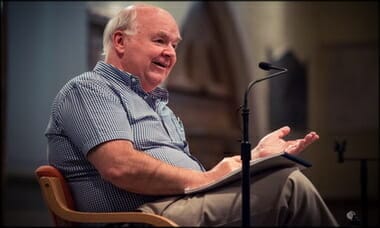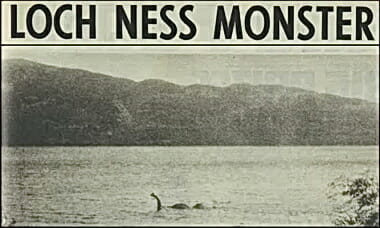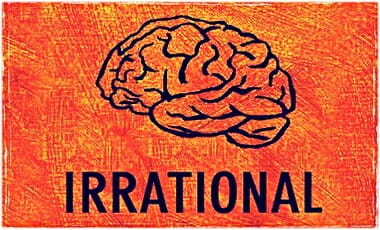
Atheism


An Excerpt From “The Atheist Who Didn’t Exist”
The Stanford Encyclopedia of Philosophy defines Atheism as: the negation of theism, the denial of the existence of God —
- The “a-” in “atheism” must be understood as negation instead of absence, as “not” instead of “without”. Therefore, in philosophy at least, atheism should be construed as the proposition that God does not exist (or, more broadly, the proposition that there are no gods).
There is a subtle, but important difference between not believing in something and believing that something is not (does not exist). Atheism adopts the latter position in holding that God does not exist. Atheism is more than mere lack of belief, it is the denial of the existence of God. Mere lack of belief makes the atheist no different from a newborn baby or my Chevy. (Added to a bit — but from APOLOGETICS 315) | Via my post on SPAGHETTI MONTERS
Here is an excerpt from Any Banister’s wonderful new book:
- Andy Banister, The Atheist Who Didn’t Exist: Or, The dreadful Consequences of Bad Arguments (Oxford, England: Monarch Books, 2015), 13-20. More of the book can be accessed here at Amazon!
I remember the first time that I saw the bus. An old friend of mine had telephoned me out of the blue a few days before, and in a conspiratorial whisper had hissed: “You need to get down to London. There are atheist buses here.”
“Atheist buses?” I replied, bleary-eyed. It was long past midnight “How much have you drunk, Tom?”
“Only four pints,” Tom replied indignantly.
“Well, I’ve always personally thought that the slightly devil-may-care attitude of many London bus drivers to road safety tends to bring people closer to God, rather than drive them away.”
“This bus didn’t try to drive me away; it tried to drive over me. Admittedly, I was lying semi-comatose in the road at the time —”
“I knew it!”
“— at Hammersmith, and the atheist bus almost ran me over.”
“You do realize”, I explained, in the patient tone I reserve for small children and airline check-in agents, “that just because a London bus almost flattens a liberal Anglican lying on a zebra crossing, it doesn’t necessarily mean that Richard Dawkins is resorting to hit-and-run attempts to keep the religious affiliation statistics favourable.”
“I’m used to being nearly run over, I’ve holidayed in France many times,” snapped Tom. “But this was an atheist bus, I tell you.”
“You’re sure about this?”
“Yes! Now come down to London and see. Besides, you owe me a beer from that time when you lost the bet about the Archbishop’s beard.”
And so it was that I found myself, on a rainy July afternoon a few weeks later, standing among a crowd of damp tourists outside Oxford Circus tube station. We watched the traffic as cars, taxis, lorries, and the occasional sodden cyclist trundled past. And then, at last, a bus rounded the corner. A big, red London bus sporting a huge advertisement on the side, which announced in large friendly letters: “There’s Probably No God. Now Stop Worrying and EnjoyYour Life.”
Later, back in the comfort of a nearby pub, I did a little research. It turned out that the bus advertisements had been sponsored by The British Humanist Association along with a group of secular celebrities, including the well-known Oxford atheist Richard Dawkins, and represented, in their words, an attempt to provide a “peaceful and upbeat” message about atheism. The advertisements promoted a website where those who browsed could while away their journey on the number 137 bus to Battersea reading about the joys of life without belief in a god.
The atheist bus is a good place to begin our journey, because it illustrates two reasons why this book exists. First, because the slogan, despite its friendly pink letters, is a perfect example of a really bad argument. An argument so bad, so disastrous, in fact, that one has to wonder what its sponsors were thinking. More on that in a moment. But, second, it illustrates how quickly bad arguments can disseminate, spreading like an infestation ofJapanese knotweed into popular culture. For while many critics — including many atheist critics — were quick to point out the flaws in “There’s Probably No God. Now Stop Worrying and Enjoy Your Life”, it has nevertheless continued to pop up on the sides of buses not just in London but also around the world.
The bus advertisement typifies what’s come to be termed the “New Atheism”, a phrase coined back in 2006 by Wired magazine to describe the group of media-savvy atheists — men such as Richard Dawkins, Sam Harris, Daniel Dennett, and the late Christopher Hitchens — whose books attacking religion in general and Christianity in particular have sold by the truckload. What’s new about the “New Atheism”? As many have pointed out, not so much its arguments, which tend to be old ones, as its tone — which is one of apoplectic anger. Why the anger? Well, I suspect partly because God was supposed to have disappeared a long time ago, as the Great Secular Enlightenment trundled inexorably onward. As far back as 1966, Time magazine could slap a question like “Is God Dead?” on the cover (with the strong implication that the answer was “Yes”). Today, however, religion is alive and well and shows little sign of disappearing. The failure of God to roll over and die on cue has led to the denial, disappointment, and anger that can be seen underpinning much of today’s more popular form of atheism.
And, my word, has the New Atheism become a popular movement Richard Dawkins’s book The God Delusion alone has sold several million copies. Atheism has gained a voice and a confidence, and that’s fine — in the past, it was tough to be an atheist, when most societies were overwhelmingly religious. Recently, however, there’s been a cultural volte-face in many Western countries, with atheism now seen as the default position. Many people assume that atheism is, indeed, the only position for somebody who wishes to be considered educated, sophisticated, urbane, and rational. This is precisely the way the media often treats the issue too: atheism is portrayed as scientific, contemporary, and for those with brains, whereas religion is characterized as stuffy, outmoded, and irrational, something for old ladies or fuddy-duddies.
But there’s a problem. Well, several problems. Chief among them is this: that much of contemporary atheism thrives on poor arguments and cheap sound bites, advancing claims that simply don’t stand up to scrutiny. Like a cheaply made cardigan, they’re full of loose threads that, if tugged firmly, quickly begin to unraveL Let me demonstrate what I mean by returning to that notorious bus advertisement, “There’s Probably No God. Now Stop Worrying and Enjoy Your Life”. Let’s ask a few critical questions about that claim for a moment. What’s wrong with it? Well, one might begin by noting the preachy, condescending, and hectoring tone. I’ve known many atheists over the years whose chief beef with religion has been that they can’t escape it. If it’s not televangelists with perfect teeth, it’s church billboards with dodgy graphic design or giant advertising hoardings warning of hellfire and damnation. “You religious types insist on preaching at us” is the complaint Well, now the boot is very much on the other foot and the New Atheism is zealously evangelistic, not merely content with denying deities but offering health benefits at the same time (No worries! Enjoyment! Good hair!).
But there’s a deeper problem, too. For atheists like Richard Dawkins, God does not exist, right? That, after all, is what the very term “a-theist” means. Of course, there’s a myriad of other things that don’t exist: fairies, unicorns, the Flying Spaghetti Monster, successful England soccer squads. But here’s my question: what’s the connection between the non-existence of something and any effect, emotional or otherwise? There probably aren’t any unicorns, so cheer up. The Flying Spaghetti Monster is just a secular parody, so take heart. There’s no God, so quit worrying. How, precisely, does that work? Somebody once remarked that a nonsensical statement doesn’t become coherent simply because you insert the term “God” into it, so let’s illustrate the problem by rewording the atheist bus slogan for a moment:
- There’s Probably No Loch Ness Monster. So Stop Worrying and Enjoy Your Life.
Imagine, for a moment, that you’re down on your luck. Life has dealt you a series of terrible hands and nothing seems to be going your way. You’ve recently lost your job. Your wife has just left you and taken the kids with her. This very morning, a letter from your bank has arrived, declaring you bankrupt The doctor’s surgery has just rung to inform you that those worrying headaches are actually Creutzfeldt-Jakob disease. Oh, and you’re a Bradford City FC fan. Life really sucks. Have no fear, however. Put all that aside. Fret no more. For there is hope. There is an end to all worries. “There is?” I hear you cry, wiping back the tears. Yes, there is. Because (are you ready for this?) the Loch Ness Monster doesn’t exist. Never mind the fact that you may be jobless, loveless, penniless, and hopeless, doesn’t it warm the cockles of your heart to know that holidaymakers in Scotland can munch their sandwiches by Urquhart Castle and paddle their feet in Loch Ness, safe in the certain knowledge that no monster from the Jurassic era Will rear up from the deep and drag them off to a watery grave. So, are you feeling better now? No, probably not
So the first half of the claim — no God, no worry — fails spectacularly. The second half doesn’t fare much better either: “Enjoy your life.” What could be wrong with that, unless you’re one of those masochistic religious types who prefer guilt to glee? Well, Francis Spufford nails this one perfectly:
I’m sorry — enjoy your life? Enjoy your life? I’m not making some kind of neo-puritan objection to enjoyment Enjoyment is lovely. Enjoyment is great The more enjoyment the better. But enjoyment is one emotion. The only things in the world that are designed to elicit enjoyment and only enjoyment are products, and your life is not a product … To say that life is to be enjoyed (just enjoyed) is like saying that mountains should have only summits, or that all colours should be purple, or that all plays should be by Shakespeare. This really is a bizarre category error.
In other words, there is considerably more to life than just enjoyment Indeed, the full gamut of human emotions spans the alphabet To be fully, authentically human is to have experienced anger, boredom, compassion, delight, expectation, fear, guilt, hope, insecurity, joy, kindness, love, malice, nonchalance, obligation, peace, queasiness, relief, sensuality, thankfulness, uneasiness, vulnerability, wistfulness, yearning, and zealousness. Given all this, why does the atheist bus advertisement zero in on “enjoyment”? Now obviously I’m not privy to the interior mental state of those who penned the slogan, but I do wonder if it’s a symptom of a more general trend in our culture — one that says that the purpose of human life is simply to be happy, to flit merrily from one experience to another in an effervescence of ecstatic enjoyment Product after product is sold to us this way: buy this coffee, take that holiday, wear this shade of lip gloss, and you’ll be successful, popular, and joyful. The atheist bus is simply riding the cultural wave — think like this, it says, and you’ll be happy.
But what if you’re not happy? What if you’re like my earlier example — jobless, friendless, penniless, and hopeless? What if you’re at a point in your life where all is smelling not of roses, but rather suspiciously like a sewage farm on a hot afternoon? Indeed, half the world’s population lives on less than $2.50 a day and that amount is not going to keep you in lattes, lipstick or trips to Lanzarote, which means that, if the advertisers are correct about where enjoyment is located, you’re in trouble, so you’d better pull yourself together. I stress you, second person singular, had better pull yourself together, because, if the atheist bus slogan is right and there is no God, there’s nobody out there who is ultimately going to help with any pulling. You’re alone in a universe that cares as little about you (and your enjoyment) as it does about the fate of the amoeba, the ant or the aardvark. There’s no hope, there’s no justice, and there’s certainly nothing inherently wrong with poverty, incidentally, so quit protesting. Life favours the winners; some get the breaks, and others get the sticky end of the stick. Still others get to make millions selling books on atheism, enough fora lifetime of lattes. Enjoy your life? Nice work if you can get it.

Quantum Mechanics Meet Outdated Biological Models
- “Biology today is at a crossroads. The molecular paradigm, which so successfully guided the discipline throughout most of the 20th century, is no longer a reliable guide. Its vision of biology now realized, the molecular paradigm has run its course.”….
The cells we know are not just loosely coupled arrangements of quasi-independent modules. They are highly, intricately, and precisely integrated networks of entities and interactions. … To think that a new cell design can be created more or less haphazardly from chunks of other modern cell designs is just another fallacy born of a mechanistic, reductionist view of the organism.
Carl Woese – A New Biology for a New Century – Microbiology and Molecular Biology Reviews – 2004
(See more at Common Descent)
The neo-Darwinian view of biology is being undermined by the emerging evidence in quantum mechanics (QM). Now, I do not accept the QM as many atheists do… however, the deterministic view of QM is giving theism a boost in an area atheists once thought they had a new foothold. One of my favorite critics of Darwin notes as much in his referencing a 2004 article and commenting on it:
As Carl Woese explained in 2004:
- The cells we know are not just loosely coupled arrangements of quasi-independent modules. They are highly, intricately, and precisely integrated networks of entities and interactions. … To think that a new cell design can be created more or less haphazardly from chunks of other modern cell designs is just another fallacy born of a mechanistic, reductionist view of the organism.
In a previous uploaded audio and commentary of the many QM models to choose from and the one’s theist see as beneficial to scientific discovery delineates the chasm between fruitful views of science and unhealthy views in scientific modeling and their subsequent impact on scientific apologetics. The first paragraph below notes the philosophical naturalist default (so-to-speak), followed by two points related to this discussion:
…These oddities prompt some observers to conclude that QM overturns natural law and rationality, leaving us with an incomprehensible, uncreated universe. Standard physics says matter can be neither created nor destroyed by natural means, but some scientists (falsely) claim that quantum particles naturally pop in and out of existence. From this, leading atheists claim the whole universe “sprang” into existence naturally. No Creator necessary. Furthermore, they say that even if God exists and created the universe, QM shows He made a world He cannot control. Once He uncorked this world, not even God knows what will come of it. Theologians who favor science fads over Scripture conclude the same thing: QM implies God cannot govern creation or know the future….
[….]
I suggest the following starting points for the Christian response: First, for all the wild attributes that may hold true in QM, we note that macroscopic reality behaves in a predictable, law-like fashion and everywhere presents us with evidence of its fundamentally rational construction and operation. So even if quantum particles could do lawless things like pop in and out of existence naturally, no such thing happens in the realm of everyday objects. Quantum oddities, whatever you make of them, are detained at the door to the larger realities we experience.
Second, many of the astounding behaviors attributed to QM occur only in highly artificial laboratory settings. There is no certainty that these things can actually happen in real-world settings. Thus, we are justified in casting an indifferent eye on many of the zany headlines coming from physics laboratories….
The very non-deterministic models are the ones liked by atheists and they support the idea of randomness. The other “orderly” — if you will — models show an order on the quantum level that is “supra-ordered,” and thus, the theistic view of QM is emboldened by the evidence.
In other words… order and function in the DNA is guided also by laws being discovered on the quantum level… that without these strict mechanical rules life would be impossible… something “randomness” cannot account for. In other words there seems to be more going on here that the simplified “DAN to RNA to Protein” quip. And this increasing complexity equals hard-times for atheism.
While Philip Cunningham may be hard to listen to at times… I love his slow, methodical contributions to this field of learning/debate:
Again, to note the idea here:
- The other model that show rules and order on the quantum level is being supported by these discoveries, and thus, the theistic view of QM is emboldened by the evidence. In other words… order and function in the DNA is guided also by laws being discovered on the quantum level… that without these strict mechanical rules life would be impossible… something “randomness” cannot account for.
Here is the posted text under Phillip’s video on his Facebook:
Physicists Discover Quantum Law of Protein Folding: Quantum mechanics finally explains why protein folding depends on temperature in such a strange way.
First, a little background on protein folding. Proteins are long chains of amino acids that become biologically active only when they fold into specific, highly complex shapes. The puzzle is how proteins do this so quickly when they have so many possible configurations to choose from.
To put this in perspective, a relatively small protein of only 100 amino acids can take some 10^100 different configurations. If it tried these shapes at the rate of 100 billion a second, it would take longer than the age of the universe to find the correct one. Just how these molecules do the job in nanoseconds, nobody knows.
[….]
Today, Luo and Lo say these curves can be easily explained if the process of folding is a quantum affair. By conventional thinking, a chain of amino acids can only change from one shape to another by mechanically passing though various shapes in between.
But Luo and Lo say that if this process were a quantum one, the shape could change by quantum transition, meaning that the protein could ‘jump’ from one shape to another without necessarily forming the shapes in between.
[….]
Their astonishing result is that this quantum transition model fits the folding curves of 15 different proteins and even explains the difference in folding and unfolding rates of the same proteins. That’s a significant breakthrough. Luo and Lo’s equations amount to the first universal laws of protein folding. That’s the equivalent in biology to something like the thermodynamic laws in physics…
Bottom line! What has been a buttressed hideout/club of evolutionary thought — biology in general — is now in it’s early throes of bowing it’s knee to intelligent design, i.e., it’s Creator!

Agent Causality vs. Blind Causality

Atheists and the Serpents Head



What’s Behind it all? God, Science and the Universe
A post appeared on an I.D. Facebook group with this introduction:
Given the fact that he is a staunch Darwinist who fully accepts the basic tenets of the mainstream theory of evolution, you might expect Larry Moran (who, after all, did coin the derisive term “IDiots” in reference to Intelligent Design proponents) to have nothing but sneering contempt for Stephen Meyer.
Turns out, however, he met Stephen Meyer and the two got along surprisingly well, despite their deep ideological divide.
I went to the Moran’s blog and wanted to post his thoughts on Lawrence Krauss:
- Krauss tried to hammer Meyer on the “ID is not science” issue using quotes from a judge based on things said by lawyers in the Dover trial….. Lawrence Krauss is an expert on cosmology but he’s very weak on biology. I know it’s common for physicists to think they are experts in everything but that’s just not true. It was demonstrated in last night’s debate.

Is There Evidence for God? William Lane Craig vs. Kevin Scharp
William Lane Craig and Kevin Scharp discuss the validity of reasons given for God’s existence at The Veritas Forum: “Is There Evidence For God?” at Ohio State University, 2016. Find this and many other talks at http://www.veritas.org/talks.

Ravi Zacharias On Free Will and Evil In the World

Gender-Gaps, The Peace Index, and Happiest Countries
(This is the bringing together of two older posts from 3-years ago with the addition of Dr. Sommers’ video just below)
GENDER EQUALITY
The “Global Index of Peace” works in similar fashion to the Global Gender Gap Study sponsored by the World Economic Forum. Professor, scholar, and feminist, Christina Hoff Sommers explains where such endeavors go wrong:
A DEBATE ON THE PEACE-INDEX
In a prolonged debate about the above “poster,” one young gentleman brought up an issue I hadn’t really encountered all that much in my years of discussing like topics. So I wanted to isolate it and post it here for other “arm-chair apologists.” I will post his an my discussion on the matter of the “global peace index.“
Challenge
I agree, this image is highly ignorant and is very “Bumper Sticker” Now with a statement like “ATHEISM KILLS” One is tempted down the path of teleological thinking and must thus assume that Atheism is Bad as a result, but is it? I did some looking and thought to use a country with the highest percentage of Atheists as a case in point. Norway is currently one of the most Atheist countries in the world percentage wise with about 46 – 85% stated as “Atheist/Agnostic/
First Response by Me:
…question. Will Norway be able to enter a country by being “weighty” enough to get a coalition of many countries, and stop a dictator from taking over another country… keeping peace on the world stage? (First Gulf War for instance). The peace index doesn’t. If you combine all the times the US has injected itself into stopping calamity and bloodshed (WWII, the Cold War [which includes battles like Vietnam, Korea, and the like]), peace is our main business. Why? Do Western mores based in Grecian-Judeo-Christian understanding [and how it was applied in the U.S.] make the West more adamant about rights?
Second Challenge:
…you are correct the Global Peace index does not account for political weight and or the ability to step in as a country and use military force for the greater good. However, while we can all agree that Hitler was an evil man who needed to be stopped, it is hard to then make the logical bridge that all dictators must be stopped. Even if it is the right thing to do as I assume your point is stating, The United States certainty hasn’t made the effort of ridding the world of evil dictators. You state we should be valued in greater respect for our past military interventions such as the Cold War, which included battles like Vietnam, Korea, and the like. However, many of these proxie wars were less about peace as they were about ideology (The Red Scare). I do not believe such wars were wars of necessity and I do not believe that “Peace is our main business” All of the above should only contribute to a lower ranking on the Global Peace index. This is where you and I could spend much time on the deference in philosophies between the pros and cons of an interventionist militant government.
You ask, “Do Western mores based in Grecian-Jude-Christian understanding make the West more adamant about rights?” While I believe this question is open to much interpretation, I also believe I have already answered it by showing how Norway is leading by example for good while having a large percentage of it’s population non believers of Western based Grecian-Jude-Christian morals….
My Second Response:
…”RED SCARE” ~ not a scare as much as a fact. For instance, communism was overthrowing government-after-government:
☢ Poland, Czechoslovakia, Hungary, Romania, Bulgaria, Albania, Yugoslavia, and half of Germany, North Korea, Somalia, Ethiopia, Angola, Mozambique, Congo-Brazzaville, Benin, on and on.
[….]
Economic health, military stockpiles, foreign policies, are correlated with a non-belief system. So one aspect that makes the U.S. not fair well is our stockpile of military weapons. Thats One, two is countries that do score well on the global peace indicator with religious populations (Chile, Portugal, Malaysia, etc.), alongside those countries with a high atheist population that score poorly on the GPI (Russia, North Korea, Azerbaijan, etc.) seem to not make the cut in these Internet lists. Many of the countries said to be “atheist” are in fact still a) inhabited by a Christian majority, and/or b) possess a Christian history and ethos that has ALLOWED secular humanism to both exist and to openly criticize the very tenets from out of which it was born. Sweden, for instance, suffers from above average incidents of violent crime (rape being the highest in Europe). So the stats you provided break down under further investigation.
Atheism is a rejection of an absolute ethic. Virtues do not exist. You may apply what is morally good by law, but this has proven (like Nietzsche prophesied) to break down quickly with no “Law Above the Law.” Again, atheist defenders themselves admit this and I quoted them above.
Which Mussolini commented on this power struggle for ethics: “Everything I have said and done in these last years is relativism by intuition…. If relativism signifies contempt for fixed categories and men who claim to be bearers of an objective, immortal truth… then there is nothing more relativistic than fascistic attitudes and activity…. From the fact that all ideologies are of equal value, that all ideologies are mere fictions, the modern relativist infers that everybody has the right to create for himself his own ideology and to attempt to enforce it with all the energy of which he is capable.”
[….]
…to make another point on the “peace index,” which I took to the wood shed already, [includes as a negative a country that has capital punishment, or, the death penalty]. In Norway, Breivik killed 77 people (almost all children). The maximum sentence he can get for his crimes are 21-years in prison, which he got. Now, I am sure there have been white-collar extortionists (like a Madoff type schemer) that have been sentenced to near the same, if not the same. So Norway, because they do not have capital punishment, is higher on the “peace index,” but in fact they cheapen life by making a crime of killing children (77-of them) equal to $$$$ lost.
“It’s become common knowledge that Denmark, Sweden and Norway routinely rank highest on lists of the world’s happiest nations…” (The World’s Happiest Countries Take The Most Antidepressants)
(As usual, all graphics/pics are linked to other resources.) Often I hear about how much lower the crime rate is in Europe, at times having the “Peace Index” thrown into the conversation without any meditation on what exactly this “index” says. Happiness is another moniker often thrown around without any comparisons of “what constitutes ‘happiness’.” So lets deal first with happiness, and then get into the peace index and gun-control/stats.
HAPPINESS
What constitutes happiness between the States and Europe? Let’s delve — quickly — into this topic via Forbes (2006):
The average American works 25 hours a week; the average Frenchman 18; the average Italian a bit more than 16 and a half. Even the hardest-working Europeans–the British, who put in an average of 21 and half hours–are far more laid-back than their American cousins.
Compared with Europeans, Americans are more likely to be employed and more likely to work longer hours–employed Americans put in about three hours more per week than employed Frenchmen. Most important, Americans take fewer (and shorter) vacations. The average American takes off less than six weeks a year; the average Frenchman almost 12. The world champion vacationers are the Swedes, at 16 and a half weeks per year.
Of course, Europeans pay a price for their extravagant leisure. The average Frenchman produces only three-quarters as much as the average American, even though productivity per hour is slightly higher in France.
This raises more than one interesting question. First, why do Americans choose to work so much? (Or, if you prefer, why do Europeans choose to work so little?) Second, who’s happier?…..
Why indeed.
I think this is answered a bit later in a newer poll/study, found at Live Science (see also FoxNews):
Americans really do love to work, it seems, while Europeans are much happier if they skip burning the midnight oil in favor of leisure. That’s according to a new study finding longer work hours make Europeans unhappy while Americans get a very slight (albeit not statistically significant) bliss boost from the extra grind.
“Those who work longer hours in Europe are less happy than those who work shorter hours, but in the U.S. it’s the other way around,” said study author Adam Okulicz-Kozaryn, a clinical assistant professor of public policy at The University of Texas at Dallas. “The working hours’ category does not have a very big impact on the probability of happiness of Americans.” [Happiest States’ List]
The study, based on survey data, can’t tease out whether work causes happiness or unhappiness, though the researchers speculate the effect has to do with expectations and how a person measures success.
Okulicz-Kozaryn used surveys of European and American attitudes for the study. The surveys included questions about the number of hours worked and asked respondents to identify if they were “very happy,” “pretty happy” or “not too happy.”
They found that the likelihood of Europeans’ describing themselves as “very happy” dropped from around 28 percent to 23 percent as work hours climbed from under 17 hours a week to more than 60 hours per week. Americans, on the other hand, held steady, with about a 43 percent chance of describing themselves as happy regardless of working hours.
The results held even after the researchers accounted for possible confounding factors, such as age, marital status and household income….
[….]
“Happiness depends upon satisfaction with your income, satisfaction with you family life, satisfaction with your work, satisfaction with your health,” he said.
“People trade off work and leisure,” Easterlin explained, and so any attempt to explain the results of this study would have to take that into account. “[Happiness] has to do with what you think the goals are of people in the two countries.”
American happiness is a pursuit important enough to include in one of our Founding documents, right next to life and liberty. This “pursuit” we are use to (and is being harmed/deformed by the welfare state growing larger) creates innovation. For instance David Mamet notes the following:
In my family, as in yours, someone regularly says, “Hey, you know what would be a good idea … ?” And then proceeds to outline some scheme for making money by providing a product or service the need for which has just occurred to him. He and the family fantasize about and discuss and elaborate this scheme. Inherent in this fantasy is the unstated but ever-present truth that, given sufficient capital and expertise or the access to the same, the scheme might actually be put into operation (as, indeed, constantly, throughout our history, such schemes have), bettering the lives of the masses and bringing wealth to their creators. Do you believe such conversations take place in Syria? In France?
David Mamet, The Secret Knowledge: On the Dismantling of American Culture (New York, NY: Sentinel Publishing, 2011), [FN] 120.
Some can be happy with less pay and trusting the state will care for them enough to go on 12-week vacations. While doctors, for instance, may enjoy a month-long vacation in France [mandatory vacation], this “happiness” rather than hard-work often has deadly consequences, one being — for instance — nearly 15,000 people dying in a heat wave in France in 2003 (a record for Europe… previously Italy held it with 3,000).
- …Health Minister Jean-Francois Mattei has ordered a separate special study this month to look into a possible link with vacation schedules after doctors strongly denied allegations their absence put the elderly in danger. The heat wave hit during the August vacation period, when doctors, hospital staff and many others take leave…
So Europe being “happier” than the United States is something of a misnomer.
FAUX HAPPINESS
About the above graphic:
…the moods of Scandinavian nations may be more closely linked to medicine than anything else. The chart depicts the relative amounts of antidepressant consumption across several different European nations. Iceland — not technically in Scandinavia but nearby — leads with 118 daily doses per 1,000 people. Denmark, Sweden and Finland are all close behind…. The report notes that the prevalence of antidepressants in Europe is a growing trend. “In all European countries for which data is available, the consumption of antidepressants has increased a lot over the decade, by over 80% on average across EU member states,” it reads. According to the report, 30 percent of Icelandic women over the age of 65 had an antidepressant prescription in 2008.
It may seem paradoxical that the world’s happiest nations also take the most antidepressants.
“Life, Liberty and the pursuit of Happiness.” We pursue it, not expecting government to provide it for us. If government doeas, a simple economic law states — basically — that creativity is squelched:
- “A fundamental principle of information theory is that you can’t guarantee outcomes… in order for an experiment to yield knowledge, it has to be able to fail. If you have guaranteed experiments, you have zero knowledge”
George Gilder, Interview by Dennis Prager {Editors note: this is how the USSR ended up with warehouses FULL of “widgets” (things made that it could not use or people did not want) no one needed in the real world.}
PEACEFUL/SAFE
When people do, austerity more-often-than-not leads to riots and collapse. And why in many European countries the EU is being rejected, and conservative parties are getting landslides (like UKIP in the UK). People are fed up with horrible health care, no incentive to succeed, taxes, crime, and immigration issues. 
Okay, I feel my point has been made. Innovation comes by a drive to work hard, as much as you wish in fact… whereas Europe forces people to work less, and thus is stagnant in relation to this said innovation. What about crime rates and violence, yes, even gun violence? Lets see. Firstly, I deal with some of the more pressing issues with the Peace Index here. But in this conversation, I wanted to deal with violent crimes… which include more than gun violence. As Europe gives birth to a generation divorced of their cultural heritage, you will see a rise in violence, and then a rise in reaction to it. Maybe an over-reaction?
VIOLENCE
Firstly, if you are an in-depth kind of reader, at this link you will find multiple debates and appearances of John Lott on CNN and other programs discussing gun crime. But let’s deal with a place that has for years made gun ownership illegal, the United Kingdom. Here is the headline from The Telegraph on the topic:
Analysis of figures from the European Commission showed a 77 per cent increase in murders, robberies, assaults and sexual offences in the UK since Labour came to power.
The total number of violent offences recorded compared to population is higher than any other country in Europe, as well as America, Canada, Australia and South Africa.
Opposition leaders said the disclosures were a “damning indictment” of the Government’s failure to tackle deep-rooted social problems.
The figures combined crime statistics for England, Wales, Scotland and Northern Ireland.
The UK had a greater number of murders in 2007 than any other EU country – 927 – and at a relative rate higher than most western European neighbours, including France, Germany, Italy and Spain.
It also recorded the fifth highest robbery rate in the EU, and the highest absolute number of burglaries, with double the number of offences recorded in Germany and France.
Overall, 5.4 million crimes were recorded in the UK in 2007 – more than 10 a minute – second only to Sweden.
Chris Grayling, shadow home secretary, said: “This is a real damning indictment of this government’s comprehensive failure over more than a decade to tackle the deep rooted social problems in our society, and the knock-on effect on crime and anti-social behaviour.
“We’re now on our fourth Home Secretary in this parliament, and all we are getting is a rehash of old initiatives that didn’t work the first time round. More than ever Britain needs a change of direction.”
The figures were sourced from Eurostat, the European Commission’s database of statistics. They are gathered using official sources in the countries concerned such as the national statistics office, the national prison administration, ministries of the interior or justice, and police.
A breakdown of the statistics, which were compiled into league tables by the Conservatives, revealed that violent crime in the UK had increased from 652,974 offences in 1998 to more than 1.15 million crimes in 2007.

It means there are over 2,000 crimes recorded per 100,000 population in the UK, making it the most violent place in Europe.
Austria is second, with a rate of 1,677 per 100,000 people, followed by Sweden, Belgium, Finland and Holland.
By comparison, America has an estimated rate of 466 violent crimes per 100,000 population.
France recorded 324,765 violent crimes in 2007 – a 67 per cent increase in the past decade – at a rate of 504 per 100,000 population.
Which segways into a recent comparison in crime and gun-control in a Wall Street Journal article by Joyce Lee Malcolm, entitled: “Two Cautionary Tales of Gun Control: After a school massacre, the U.K. banned handguns in 1998. A decade later, handgun crime had doubled.” Here is an interview of her in regards to the article, followed by excerpts from said article:
Larry Elder Interview & Wall Street Journal Article
Here are portions of the article:
…Great Britain and Australia, for example, suffered mass shootings in the 1980s and 1990s. Both countries had very stringent gun laws when they occurred. Nevertheless, both decided that even stricter control of guns was the answer. Their experiences can be instructive.
In 1987, Michael Ryan went on a shooting spree in his small town of Hungerford, England, killing 16 people (including his mother) and wounding another 14 before shooting himself. Since the public was unarmed—as were the police—Ryan wandered the streets for eight hours with two semiautomatic rifles and a handgun before anyone with a firearm was able to come to the rescue.
Nine years later, in March 1996, Thomas Hamilton, a man known to be mentally unstable, walked into a primary school in the Scottish town of Dunblane and shot 16 young children and their teacher. He wounded 10 other children and three other teachers before taking his own life.
Since 1920, anyone in Britain wanting a handgun had to obtain a certificate from his local police stating he was fit to own a weapon and had good reason to have one. Over the years, the definition of “good reason” gradually narrowed. By 1969, self-defense was never a good reason for a permit.
After Hungerford, the British government banned semiautomatic rifles and brought shotguns—the last type of firearm that could be purchased with a simple show of fitness—under controls similar to those in place for pistols and rifles. Magazines were limited to two shells with a third in the chamber.
Dunblane had a more dramatic impact. Hamilton had a firearm certificate, although according to the rules he should not have been granted one. A media frenzy coupled with an emotional campaign by parents of Dunblane resulted in the Firearms Act of 1998, which instituted a nearly complete ban on handguns. Owners of pistols were required to turn them in. The penalty for illegal possession of a pistol is up to 10 years in prison.
The results have not been what proponents of the act wanted. Within a decade of the handgun ban and the confiscation of handguns from registered owners, crime with handguns had doubled according to British government crime reports. Gun crime, not a serious problem in the past, now is. Armed street gangs have some British police carrying guns for the first time. Moreover, another massacre occurred in June 2010. Derrick Bird, a taxi driver in Cumbria, shot his brother and a colleague then drove off through rural villages killing 12 people and injuring 11 more before killing himself.
[….]
Six weeks after the Dunblane massacre in 1996, Martin Bryant, an Australian with a lifelong history of violence, attacked tourists at a Port Arthur prison site in Tasmania with two semiautomatic rifles. He killed 35 people and wounded 21 others.
At the time, Australia’s guns laws were stricter than the United Kingdom’s. In lieu of the requirement in Britain that an applicant for permission to purchase a gun have a “good reason,” Australia required a “genuine reason.” Hunting and protecting crops from feral animals were genuine reasons—personal protection wasn’t.
With new Prime Minister John Howard in the lead, Australia passed the National Firearms Agreement, banning all semiautomatic rifles and semiautomatic and pump-action shotguns and imposing a more restrictive licensing system on other firearms. The government also launched a forced buyback scheme to remove thousands of firearms from private hands. Between Oct. 1, 1996, and Sept. 30, 1997, the government purchased and destroyed more than 631,000 of the banned guns at a cost of $500 million.
To what end? While there has been much controversy over the result of the law and buyback, Peter Reuter and Jenny Mouzos, in a 2003 study published by the Brookings Institution, found homicides “continued a modest decline” since 1997. They concluded that the impact of the National Firearms Agreement was “relatively small,” with the daily rate of firearms homicides declining 3.2%.
According to their study, the use of handguns rather than long guns (rifles and shotguns) went up sharply, but only one out of 117 gun homicides in the two years following the 1996 National Firearms Agreement used a registered gun. Suicides with firearms went down but suicides by other means went up. They reported “a modest reduction in the severity” of massacres (four or more indiscriminate homicides) in the five years since the government weapons buyback. These involved knives, gas and arson rather than firearms.
In 2008, the Australian Institute of Criminology reported a decrease of 9% in homicides and a one-third decrease in armed robbery since the 1990s, but an increase of over 40% in assaults and 20% in sexual assaults.
What to conclude? Strict gun laws in Great Britain and Australia haven’t made their people noticeably safer, nor have they prevented massacres. The two major countries held up as models for the U.S. don’t provide much evidence that strict gun laws will solve our problems.
Ms. Malcolm, a professor of law at George Mason University Law School, is the author of several books including “Guns and Violence: The English Experience,” (Harvard, 2002).
Of course America’s worst massacre involving a school is the Bath Bombing (below), Michigan (1927). And a bomb killed 168 people in the Oklahoma City Bombing. So if someone wants to kill another… no amount of government regulation will decrease this fact:
- “…we have no government, armed with power, capable of contending with human passions, unbridled by morality and religion. Avarice, ambition, revenge and licentiousness would break the strongest cords of our Constitution, as a whale goes through a net. Our Constitution was made only for a moral and religious people. It is wholly inadequate to the government of any other.”
John Adams, first (1789–1797) Vice President of the United States, and the second (1797–1801) President of the United States. Letter to the Officers of the First Brigade of the Third Division of the Militia of Massachusetts, 11 October 1798, in Revolutionary Services and Civil Life of General William Hull (New York, 1848), pp 265-6.

Is God Just a Psychological Crutch for the Weak?
Via Thinking Matters:
 1. Freud himself acknowledged that his “psychoanalysis” of religion had no supporting clinical evidence.
1. Freud himself acknowledged that his “psychoanalysis” of religion had no supporting clinical evidence.
2. The argument commits the genetic fallacy, which is the error of attributing truth or falsehood to a belief based on its origin or genesis.
3. We need to distinguish between the rationality of belief and the psychology of belief.
4. It is odd and arbitrary to claim that whatever brings comfort and solace is false.
5. The incurably religious nature of human beings could just as likely indicate a divinely placed void that only God can fill.
6. A comforting father figure, while unique to the biblical faith, is not at the heart of the other world religions.
7. The attempt to psychologize believers applies more readily to the hardened atheist.
Read the whole article and Copan’s explanation of each point here. The following video presentation is by Professor Paul Vitz (I believe he is now retired)… here is a short bio on him via Conservapedia:
Paul Vitz is a Psychology professor at New York University. He graduated with a B.A. in Psychology from the University of Michigan in 1957 and with a Ph.D in Psychology from Stanford University in 1962. An atheist until he was in his late 30s, he is now a practicing Roman Catholic. His focus is on the connection between Christianity and Psychology. He is a member of the fellowship of Catholic Scholars, but also has strong contact to Evangelical Protestantorganizations and deeply religious Jews.
Vitz criticizes liberalism and believes there is a link between fatherlessness and atheism, as he demonstrates in his book Faith of the Fatherless, the Psychology of Atheism (1999). The thesis of Faith of the Fatherless holds that famous believers—e.g., Blaise Pascal, Edmund Burke, Friedrich Schleiermacher, Karl Barth, and Dietrich Bonhoeffer—had strong and loving fathers, whereas their atheistic counterparts—e.g., Thomas Hobbes, Voltaire, Sigmund Freud, Mao Zedong and Adolf Hitler—all had fathers who were weak, unloving, or absent. Thus, philosophers, professors, and political tyrants who denounce God do so in order to relive traumatic childhood experiences and to subconsciously seek out help rather than to explore any sort of valid or respectable reasoning process.
His books are as follows (his Amazon page is here):
- Psychology As Religion: The Cult of Self-Worship;
- Modern Art and Modern Science: The Parallel Analysis of Vision, authored with Arnold B. Glimcher;
- Sigmund Freud’s Christian Unconscious;
- Censorship: Evidence of Bias in Our Children’s Textbooks;
- The Course of True Love: Marriage in High School Textbooks, a Report to the Nation from the Council on Families;
- Defending the Family: A Sourcebook, edited with Stephen M. Krason;
- Faith of the Fatherless: The Psychology of Atheism;
- The Self: Beyond the Postmodern Crisis, edited with Susan M. Felch.
Here is another example of a crutch allowing people to feel like they can act-out as they please:
Heaven or Hell? The Sinners Crutch!
From video description
In this “Ultimate Issues Hour,” Dennis Prager discusses “Ultimate Justice” (God’s justice and otherwise) and justice’s involvement/affect in/on behavior. A new study reveals that belief in hell [and heaven] predicted a lower crime rate; belief in heaven predicted more crimes. Dennis tackles this hard to explain — or is it — issue.
This is uploaded because of an article by a detective and Christian apologist that likewise deals head-on with these questions as well (See, “Does Belief In God Encourage Criminal Behavior?“). Detective Wallace says, “Criminals who justify their actions with religious doctrines are typically woefully ignorant of (or purposefully distorting) these doctrines,” I concur. Having been in jail for almost a full year-and-a-half with three felonies, I know first hand the psychological crutch religion can play, rather than the Refiner’s Fire Christianity is meant to be (Zechariah 13:9, 1 Peter 1:7, Job 23:10, Isaiah 48:10).
I will add that “Liberalism,” wherever it is applied (politics, economics, faith, ethics, and the like), harms immeasurably the actions of those involved in it. Theology is no less hurt by this progressive matrix.
Just the latest example of this are those that are opposed to pro-lifers support of a bill that will stop late-term abortions. They can be heard chanting “hail Satan” in response to others singing “Amazing Grace.” As well as “fu*k the church!” The Democrats that once supported and made up John F. Kennedy’s base would not recognize the liberal Democratic party of today. Which is why Dennis says (as well as Reagan) that the Democratic Party left them, not the other way around.
- See Detective Warner’s ministry: http://pleaseconvinceme.com/

“Proven” ~ Atheists Use Less of Their Mind
- “Atheism is a disease of the soul before it is an error of the mind.” ~ Plato
This comes by way of Debunking Atheists, via his FaceBook group and a commentator therein:
Atheists embarrassed: study proves atheism uses less brain function
This has to be embarrassing… if you’re an atheist. A new study performed at the University of York used targeted magnetism to shut down part of the brain. The result: belief in God disappeared among more than 30 percent of participants.
That in itself may not seem so embarrassing, but consider that the specific part of the brain they frazzled was the posterior medial frontal cortex—the part associated with detecting and solving problems, i.e., reasoning and logic.
In other words, when you shut down the part of the brain most associated with logic and reasoning, greater levels of atheism result.
You’ve heard the phrase, “I don’t have enough faith to be an atheist”? Apparently we can now also say, “I have too many brains to be an atheist.”…
Another article notes the other “liberal” side-affect of losing belief in God via brain-damage:
- “Belief in God was reduced almost by a third, while participants became 28.5 per cent less bothered by immigration numbers.”
The articles author continues:
….We still haven’t answered the big question: why. Why did the authors design a study about belief in God and attitudes about immigrants? From their conclusion, written in the impenetrable prose typical of such “studies”:
History teaches that investment in cherished group and religious values can bring forth acts of both heroic valor and horrific injustice. Understanding the psychological and biological determinants of increases in ideological commitment may ultimately help us to identify the situational triggers of, and individuals most susceptible to, this phenomenon, and thereby gain some leverage over the zealous acts that follow.The results provide evidence that relatively abstract personal and social attitudes are susceptible to targeted neuromodulation, opening the way for researchers to not only describe the biological mechanisms undergirding high-level attitudes and beliefs, but also to establish causality via experimental intervention.
Did you catch that? These scientists hope that in the future belief in God, or in some other politically incorrect question that might — only might — lead to “zealous acts,” can be treated, maybe even cured, by magnet zappings. And there you have the real danger that follows from believing you can quantify the unquantifiable.
Can’t you see it now… re-education camps with MRI machines removing God and conservative values from people with a magnetic lobotomy. Every progressives dream.
One should note as well that responsible use of MARIJUANA for recreation (3-times a week) has a detrimental affect on the brain. Otherwise known as brain damage.
Since 1983, when THC concentrations averaged below 4 percent, potency has intensified until it now exceeds an average of 10 percent. Many marijuana samples are in the 10-20 percent range. Some marijuana samples show THC concentrations exceeding 30 percent. If we were talking about alcohol, this increase in intoxication potential would be like going from drinking a “lite” beer a day to consuming a dozen shots of vodka.
[….]
Both subtle and acute changes in emotional and intellectual development occur in young marijuana users because the arc of their brain’s structural development becomes recalibrated by marijuana use. Brain researchers documented in 2008 how chronic marijuana use starting in adolescence significantly decreases the size of two brain areas thick in cannabinoid receptors—the amygdala by 7 percent and the hippocampus by 12 percent. One result was that young chronic marijuana users performed much worse than nonusers on verbal learning tests.
TWO BOOKS I HIGHLY RECOMMEND:
- Kevin A. Sabet, Reefer Sanity: Seven Great Myths About Marijuana
- Alex Berenson, Tell Your Children: The Truth About Marijuana, Mental Illness, and Violence
You see, the brain continues to grow and make important connections to the age of around 27/28 years old. Using THC laden products 3-times a week causes irreparable damage to one’s reasoning and memory skills. Which is why many “stoners” reject religions that may require historical content (cultural memories, tradition) as well as reasoning function.

Atheists Assume Non-Material “Beliefs” Every Day
Here is a detailing of the above in a book I recently read:
“There is no need for God,” Atkins declared. “Everything in the world can be understood without needing to evoke a God. You have to accept that’s one possible view to take about the world.”
“Sure, that’s possible,” Craig admitted. “But—”
[Interrupting] “Do you deny that science can account for everything?” challenged Atkins.
“Yes, I do deny that science can account for everything,” said Craig.
“So what can’t it account for?” demanded Atkins.
“I think that there are a good number of things that cannot be scientifically proven, but that we’re all rational to accept,” Craig began.
[Interrupting] “Such as?”
“Let me list five,” Craig continued. “[First,] logical and mathematical truths cannot be proven by science. Science presupposes logic and math so that to try to prove them by science would be arguing in a circle. [Second,] metaphysical truths like there are other minds other than my own, or that the external world is real, or that the past was not created five minutes ago with the appearance of age are rational beliefs that cannot be scientifically proven. [Third,] ethical beliefs about statements of value are not accessible by the scientific method. You can’t show by science that the Nazi scientists in the camps did anything evil as opposed to the scientists in Western democracies. [Fourth,] aesthetic judgments cannot be accessed by the scientific method because the beautiful, like the good, cannot be scientifically proven. And finally, most remarkably, would be science itself. Science cannot be justified by the scientific method, since it is permeated with unprovable assumptions. For example, the special theory of relativity—the whole theory hinges on the assumption that the speed of light is constant in a one-way direction between any two points, A and B, but that strictly cannot be proven. We simply have to assume that in order to hold to the theory!”
Feeling vindicated, Buckley peered over at Atkins and cracked, “So put that in your pipe and smoke it.”
Frank Turek, Stealing from God (Colorado Springs, CO: NavPress, 2014), 162-163.


